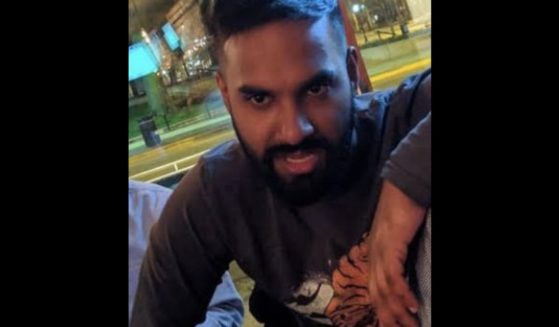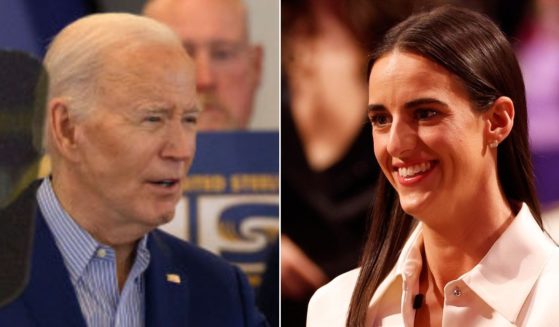Democrats to Vote on Rescinding Defense of Marriage Act, Which Biden and Others in Party Voted Into Law
The Democrat-controlled House of Representatives is expected to vote this week on the Respect for Marriage Act, which among things would officially rescind the 1996 Defense of Marriage Act.
DOMA defined marriage as between one man and one woman and provided that states did not have to recognize same-sex unions from other states if doing so was contrary to their laws.
The legislation passed with overwhelming majorities in both the Senate and the House and was signed into law by then-Democratic President Bill Clinton.
Among the Democrats who voted for the legislation were then-Sen. Joe Biden of Delaware and Sen. Patrick Leahy of Vermont.
Sen. Dianne Feinstein of California was among 14 senators, all Democrats, who voted against the law.
On the House side, Democratic Rep. Steny Hoyer of Maryland, now the majority leader, voted for the law, while Rep. Nancy Pelosi of California, the current House speaker, voted against it.
In 2015, the Supreme Court ruled in Obergefell v. Hodges that there is a constitutional right for same-sex couples to marry.
Then-Justice Anthony Kennedy delivered the 5-4 majority decision, citing the 14th Amendment’s due process and equal protection clauses.
The ruling overrode all state laws and constitutional provisions that defined marriage as between one man and one woman.
The Hill reported that if the court were to overrule Obergefell and return the matter to the states, same-sex marriage would be illegal in more than 30 states.
The justices who dissented in the 2015 case were Chief Justice John Roberts, Antonin Scalia, Samuel Alito and Clarence Thomas.
Democrats have seized on Thomas’ concurring opinion in the recent Dobbs v. Jackson Women’s Health Organization decision overturning Roe v. Wade, thus returning the issue of abortion to the states, to sound the alarm that the Supreme Court could do likewise with same-sex marriage.
It should be noted that Neil Gorsuch — who replaced Scalia and voted to overturn Roe — and Roberts sided with the liberal justices on the court in the summer of 2020 in a sweeping LGBT rights case.
So even if same-sex marriage were to come before the court again, it seems pretty unlikely Obergefell would be overturned.
Alito even wrote in his majority opinion in Dobbs, “[W]e have stated unequivocally that ‘[n]othing in this opinion should be understood to cast doubt on precedents that do not concern abortion.’
“We have also explained why that is so: rights regarding contraception and same-sex relationships are inherently different from the right to abortion because the latter (as we have stressed) uniquely involves what Roe and Casey termed ‘potential life.'”
Nonetheless, Democrats see an opportunity to make political hay, hence the move to rescind the Defense of Marriage Act.
“If Justice Thomas’ concurrence teaches anything it’s that we cannot let your guard down or the rights and freedoms that we have come to cherish will vanish into a cloud of radical ideology and dubious legal reasoning,” House Judiciary Committee Chairman Jerrold Nadler of New York said in a statement regarding rescinding DOMA.
Other Democrats issued similar dire warnings.
In his concurring opinion in Dobbs, Thomas wrote, “In future cases, we should reconsider all of this Court’s substantive due process precedents, including Griswold [contraception], Lawrence [striking down anti-sodomy laws], and Obergefell. Because any substantive due process decision is ‘demonstrably erroneous,’ we have a duty to ‘correct the error’ established in those precedents.”
In his Obergefell dissent, Thomas argued the majority strayed from the text of the Constitution in finding there is a “liberty” right in the due process clause for same-sex couples to marry.
The 14th Amendment reads, in part, that no state “shall deprive any person of life, liberty, or property, without due process of law; nor deny to any person within its jurisdiction the equal protection of the laws.”
Thomas explained that what being deprived of liberty meant in the text and context of the constitutional provision is that no one could be imprisoned or restrained without first receiving all the procedural protections the law provides for those accused of a crime.
Put in that context, he contended that same-sex couples were not being denied the liberty protected by the Constitution.
Same-sex couples weren’t being imprisoned if they decided to marry through a ceremony or to cohabitate, even if the state in which they lived did not recognize their marriages.
Thomas concluded the definition of marriage — as well as any legal benefits that flow from it — was a matter left to the states.
Truthfully, he was right both textually and contextually in terms of the Constitution.
Nevertheless, at this point, it seems highly unlikely Obergefell would be overturned.
The Democrats’ push to rescind DOMA reflects a party grasping for anything that might mitigate the damage coming in the November midterm elections.
Truth and Accuracy
We are committed to truth and accuracy in all of our journalism. Read our editorial standards.












